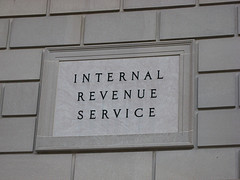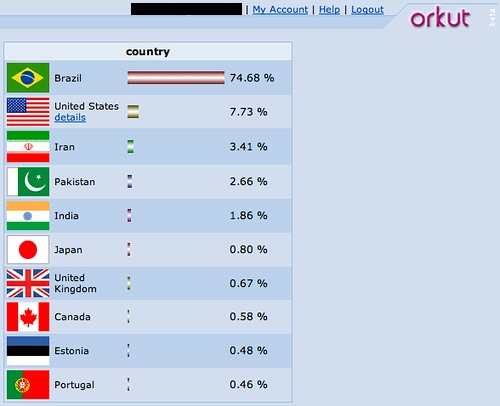Third-Party Content
Monsarrat v. Filcman
FunnyJunk, LLC vs. TheOatmeal.com
ANNOUNCEMENT: Panel and Fundraiser for "Without My Consent"
Does Washington State's SB 6251 Require Online Classified Sites to Monitor All Third-Party Content?
The IRS and User-Generated Content
Britain's New Libel Bill: Better on Libel Tourism, But Worse on Anonymous Online Speech
Viacom v. YouTube: The Second Circuit Punts on 'Right and Ability to Control'
CMLP ANNOUNCEMENT: Resources on SOPA/PIPA
Major League Baseball v. Charter Communications Inc.
T&J Towing v. Kurtz: We've Got The Court Documents
Copyright 2007-25 Digital Media Law Project and respective authors. Except where otherwise noted,
content on this site is licensed under a Creative Commons Attribution-Noncommercial-ShareAlike 3.0 License: Details.
Use of this site is pursuant to our Terms of Use and Privacy Notice.
content on this site is licensed under a Creative Commons Attribution-Noncommercial-ShareAlike 3.0 License: Details.
Use of this site is pursuant to our Terms of Use and Privacy Notice.


 On November 6, the Paris Tribunal de Grande Instance (TGI) ordered Google and Google France to withdraw and stop displaying in their search engine results, for a period of five years, nine pictures of British citizen Max Mosley. By doing so, the TGI refused to consider Google as a mere Internet intermediary that provides hosting and/or caching functions.
On November 6, the Paris Tribunal de Grande Instance (TGI) ordered Google and Google France to withdraw and stop displaying in their search engine results, for a period of five years, nine pictures of British citizen Max Mosley. By doing so, the TGI refused to consider Google as a mere Internet intermediary that provides hosting and/or caching functions. As we have
As we have  Britain's effort to reform its defamation laws and shed London's title of "libel capital of the world" has been chugging along for several years, but now it looks like it's in sight of the last stop: The government unveiled its proposed
Britain's effort to reform its defamation laws and shed London's title of "libel capital of the world" has been chugging along for several years, but now it looks like it's in sight of the last stop: The government unveiled its proposed  I'm not all that worried about YouTube's legal fate as such (I'm pretty sure Google can
I'm not all that worried about YouTube's legal fate as such (I'm pretty sure Google can  Last Monday, the New York Times ran an
Last Monday, the New York Times ran an  A mid-level appellate court in Illinois ruled on Tuesday that the publisher of a local newspaper must reveal the identity of a pseudonymous Internet commenter. In
A mid-level appellate court in Illinois ruled on Tuesday that the publisher of a local newspaper must reveal the identity of a pseudonymous Internet commenter. In 

Description:
On February 4, 2013, Jonathan Graves Monsarrat filed a complaint in the Superior Court Department of Middlesex County, Massachusetts against defendants Deb Filcman, Ron Newman, and John and Jane Does 1-100. The complaint alleges that the defendants posted defamatory comments about the plaintiff on the website www.LiveJournal.com beginning on February 4, 2010, which related a linked-to blog post by defendant Filcman on the Somerville Journal's "Wicked Local" webpage. Defendant Newman administers the "davis square" forum on the site on which Monsarrat alleges many of the defamatory responses were posted. As LiveJournal is an online forum, many users are known only by aliases; Monsarrat asserted claims against these commentators by naming them as "John and Jane Does 1 through 100" until their identities could be ascertained through the discovery process.
The defendants' posts concerned Monsarrat's arrest on January 29, 2010, in connection with charged of keeping a noisy and disorderly home and serving alcohol to persons under 21. While these charges were ultimately dismissed against Monsarrat, the plaintiff alleges that the defendants' comments ruined his "reputation, regard, esteem and goodwill." The complaint cites to many of the comments posters made to the "davis square" forum, alleging that these posts are particularly defamatory as they affect him and his businesses locally.
Monsarrat's complaint included claims for: defamation; a violation of Massachusetts' Unfair and Deceptive Trade Practices Act, Mass. Gen. L. ch. 93A; business disparagement; common law copyright infringement (based on photographs taken from Monsarrat's website); intentional infliction of emotional distress; and civil conspiracy.
The complaint alleges that the defendants "intentionally planned and orchestrated this cybersmear attach" [sic] and that defendants "conspired together" to commit the acts which injured Monsarrat. Monsarrat's complaint claims damages amounting to over $500,000 from medical expenses, lost wages (documented and anticipated), and reputational damages.
On April 30, 2013, Monsarrat filed an amended complaint. The amended complaint included all of the initial allegations, and added that under Monsarrat's fourth claim for relief - common law copyright infringement - the defendants' misappropriation was not "for fair use or satire purposes" but instead "in furtherance of their collective willful, wanton and tortious conduct." The amended complaint also included additional damage demands in the form of "costs and disbursements plus interest from the date of commencement" of the action.
On May 14, 2013, defendant Newman's attorney sent a letter in response to Monsarrat's complaint. The answer described Newman's discussion on the LiveJournal forum as "promoting respectful, lively conversation without imposing ham-fisted restraint on the free speech of the community." The letter addressed each of the complaint's assertions in turn, including asserting that:
The May 14th letter claims that Monsarrat's claims are wholly without merit and were brought in bad faith, and demands that Monsarrat's attorney file a notice voluntarily dismissing the complaint with prejudice or else face sanctions.
On May 28, 2013, defendant Filcman's attorney sent a letter in response to Monsarrat's complaint. The letter contends that Filcman's article on Monsarrat's January 2010 arrest is protected under the First Amendment and adds that the plaintiff's allegation of a "wide-spread cyber-smear campaign" is without basis "in fact or law" and "frivolous, abusive, and harassing." In addressing the defamation claims, the letter points to Massachusetts' fair report privilege that provides a safe harbor on fair and accurate reports. The letter also asserts that there is "no such thing" as a common law copyright claim, and under the federal Copyright Act, the plaintiff's photograph was not federally registered and his claim would therefore fail.
On June 7, 2013, Monsarrat's attorney filed a voluntary dismissal with prejudice (a copy of the official text is posted on LiveJournal). No settlement was reported on the docket of the court and no payments were made.